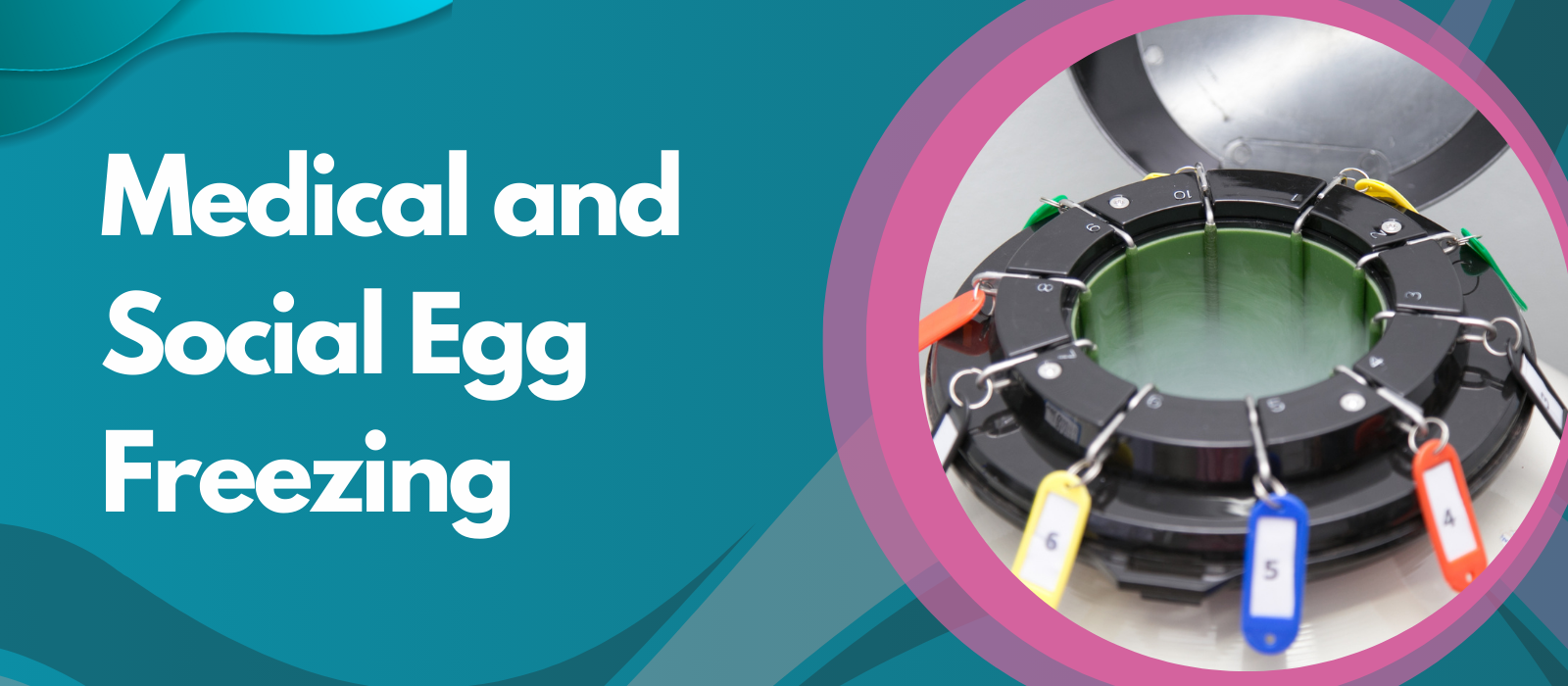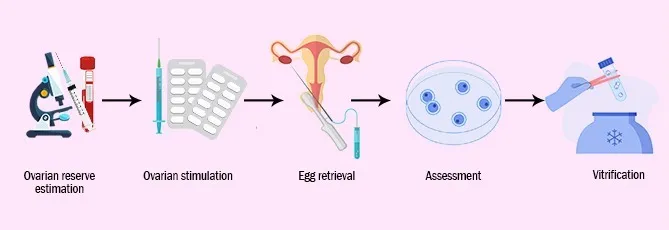
Medical and Social Egg Freezing in Ahmedabad
Egg preservation is an emerging technique that provides the opportunity to maintain reproductive health to all those female patients who either have to receive medical treatments or want to preserve their eggs to postpone pregnancy due to personal reasons.
Egg preservation is the process of collecting, freezing, and conserving a woman’s eggs. So, the woman can use these eggs to conceive in the future. Egg freezing gives a woman the opportunity to try for a baby later.
Nisha IVF Centre, one of the leading IVF centres in India, offers medical and social egg freezing in Ahmedabad. We also provide sperm and embryo cryopreservation facility at an affordable price.
In this article, we will have an overview of medical and social egg freezing.
What is medical egg freezing?
Chronic illnesses seriously disrupt people’s lives. Invading cancer therapies such as chemotherapy or radiotherapy can affect the ovarian reserve and impair the ability of a woman to conceive. Medical egg freezing is meant for a woman having a chronic ailment, such as cancer, who has not yet begun treatment. This makes it possible for them to conceive later in the future.Who is eligible for medical egg freezing?
Medical egg freezing is an option for women between the ages of 18 and 42 who have been diagnosed with the condition that will seriously impact their fertility. Such conditions include treatable cancers where the treatment requires chemotherapy or radiation or any other disease that would require the removal of ovaries.What is social egg freezing?
Social egg freezing means preserving and storing a woman’s eggs for non-medical purposes.
In recent years, there has been a social trend among women of reproductive age to postpone pregnancy. This lag is caused by various lifestyle considerations, such as pursuing a career or the unavailability of the right partner.
Consequently, these women may be affected by age-related infertility when they decide to conceive. Hence, experts recommend fertility preservation techniques as a solution for such women.
Who is eligible for social egg freezing?
Social egg freezing is an option for a healthy, fertile woman who wants to have a pregnancy later in life, i.e., at 45 to 50 years of age. To increase the chances of pregnancy, egg freezing should be done on women under the age of 25. However, it is mostly done after the age of 35.What is the difference between medical egg freezing and social egg freezing?
Medical egg freezing refers to the practice of freezing eggs for women who have been diagnosed with cancer or another serious illness, whose treatment or progression has the potential to damage reproductive organs. The term medical indicates that women who use this facility do so because they have a medical disorder or illness that affects their inherited reproductive capacities. On the other hand, social egg freezing represents the use of egg freezing technology by all other women. Some of the common reasons for social egg freezing are:- Not having a companion with whom to have children
- Having a companion who is unwilling to have babies
- Want time to be prepared financially, emotionally, and socially for parenthood
What is the process of egg freezing?
Egg freezing is an extraordinarily skill-sensitive and sophisticated procedure. A qualified doctor must perform it at a clinic with a well-equipped lab. Following are the steps involved in the egg freezing process:
STEP 1 – Ovarian reserve estimation
The doctor will first assess the patient’s ovarian reserve to estimate the potential yield of eggs. For this, the doctor will order some blood tests and perform a pelvic ultrasound.
STEP 2 – Ovarian stimulation
The doctor then starts ovarian stimulation with about 8 to 12 days of hormone injections. It stimulates the ovaries to produce more eggs than the one they do every month.STEP 3 – Egg retrieval
Under sedation, the doctor aspirates the eggs with a micro-needle by inserting it vaginally.STEP 4 – Assessment
Under a microscope, the doctor examines the eggs and selects the mature ones for freezing.
STEP 5 – Vitrification
The doctor quickly but gently places the eggs in the liquid nitrogen. It keeps the eggs in the same condition to be used in the future.
Why choose Nisha IVF Centre for egg freezing in Ahmedabad?
- Team of highly qualified and experienced fertility specialists and IVF doctors in Ahmedabad
- Higher success rate
- Cost-efficient treatments such as affordable IVF cost in Ahmedabad
- Most advanced technology and cutting-edge equipment
- State-of-the-art IVF lab and ultra-modern operation theatres
What are the advantages of egg freezing?
- It supports in the preservation of fertility in women who are not ready for pregnancy and prefer to focus on their careers or further education.
- Reduces the chance of chromosomal abnormalities in children, which might increase with age, especially in mothers over 35.
- The leftover eggs can be cryopreserved for future use after the IVF procedure.
- The cryopreserved eggs can also be transferred to other women who are trying to conceive.
What are the complications associated with egg freezing?
Egg freezing is a medical technique with possible risks, as with other medical procedures. Our Nisha IVF Centre team takes the time to explain the risks of egg freezing to help women make a suitable decision.
The risks of egg freezing are comparable to the risks of IVF, which are:
- The use of injectable fertility medications may cause injection site reactions in some women, but this is rare.
- Ovarian stimulation can cause pain during ovulation as many eggs are produced.
- Some women may suffer from ovarian hyperstimulation syndrome-OHSS. But, it is uncommon, and with accurate monitoring, doctors can prevent this condition.
- During egg retrieval, some women may feel pain and bleeding. These problems are usually not severe and often alleviate on their own.
Looking for an IVF Treatment?
Fill Out the Form Below for an instant Appointment with the Doctor
